Category Writing

The Rainforest: A Camp Lesson Plan
As mentioned in the previous post, The U.S. embassy in Ecuador holds an English immersion camp for scholarship high school students. A group of fellow PCVs are charged with presenting backgroud information on the rainforest for the 2016 camp. Here is the lesson plan, which may give you ideas for your own camp.
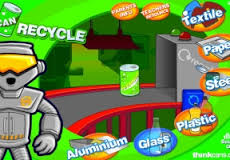
Recycling Facts, Games and Crafts
The U.S. embassy in Ecuador runs an English immersion camp, which has a distinct theme each time, for high-performing high schools students, who also receive scholarships for English lessons with a private institution. The theme for the spring 2016 camp, which will be held in the Mindo cloud forest, is our natural world and its conservation. PCV […]

Hybrid Listening Cloze and Info-gap Activity
English Teaching Forum recently published an article by Juan Pablo Zúñiga Vargas, an English teacher in Costa Rica. The submission outlines a hybrid activity that combines listening cloze with info-gap and integrates macro-and micro-language skills. Importantly, it allows students to play a more autonomous role in class.

Storybird – Artful Storytelling
New technology for classrooms abounds, but only occasionally does the “next thing” live up to its hype or truly help us teach better. Storybird, in my opinion, is a gorgeous tool for convincing your students that they really, really want to write in English or their native language. And if they want to write (and be […]

Picture-bound Travel Adventure
Intermediate- level EFL students work in groups to write and tell a creative, cohesive travel adventure based on the people and places they select from pictures.

Visual Verb Variations
Building vocabulary is fundamental to literacy and creative writing. This lesson gives teachers a visual model to help their students build verb alternatives and, thereby, refine their choice of alternative words so that the verb effectively describes their thoughts.

Anecdotes: Tell Your Story
Sharing anecdotes gives students a chance to speak and write confidently about topics of their choice.
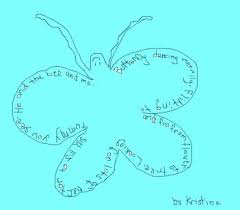
Shape Poems: Writing Starting From Vocabulary and Visual Images
A shape poem is a type of poetry that describes an object and is shaped the same as the object the poem is describing. Here language and vocabulary acquisition and exploration are developed into visual and sound patterns as students create shape poems. What a fun way to bring writing into the classroom!

Creating a New Civilization
This activity can focus on speaking and/or writing. It is a great opportunity for group work; students make decisions about the fate of 10 survivor candidates as the world reels from war, and humanity faces extinction!

TOEFL Integrated Writing
Ecuador TEFL PCVs Nikki Rowley and Clare MacKenzie created this PowerPoint for a TOEFL writing workshop with local teachers.
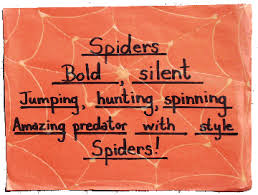
Having Fun Writing Poetry
Ecuador TEFL PCV Miranda Duncan shares her intriguing approach to making writing poetry fun using the cinquain poem as a model.

Sweet Rewards
A hurdle some PCVs in Ecuador face is low English fluency throughout their school and speaking timidity across grade levels and among their teachers. Ecuador TEFL PCV Shaun Nesheim shares a strategy that works in his site.

Campus Challenges
Ecuadorian TEFL PCVs, and probably those in other countries, assist students and teachers alike in preparing to take the TOEFL or Cambridge exams to study abroad or to meet government requirements for teaching positions. Understanding U. S. college campus environments and vocabulary and the situations new students face is crucial to score well on a […]

Student Storytellers
StoryCorps is a nonprofit organization that records and archives on its website a wide variety of stories told by the protagonists, their families, and friends. The sometimes touching, funny, riveting, or surprising tales offer our TEFL and ESL students and fellow teachers insight into U. S. culture. Moreover, the recordings and transcripts provide written and […]

Synthesizing
Synthesizing is another critical skill that our students and teachers need to master to do well on tests and in the classroom.

Paraphrasing and Summarizing
This post in our series on academic skills provides an overview of paraphasing and summarizing, along with a worksheet for teacher and student practice.

Writing Series Part Four: Putting the Essay Together, Coherently
In Part Four, we offer Ecuador PCV Nikki Rowley’s step-by-step approach to writing an essay that answers the most common TOEFL independent essay question type, “Do you agree or disagree …?” Following that is a summary of points writers should take into account that will make any essay coherent and, therefore, persuasive.
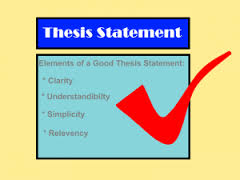
Writing Series Part Three: Thesis Statements
In Part Three, we talk about the thesis statement, which is the most important sentence in the essay. The overview is adapted from a University of North Carolina Writing Lab handout. Examples of thesis statements, written by Ecuador PCV Nikki Rowley for the sample TOEFL independent essay questions shown in Part One mind maps, are provided […]
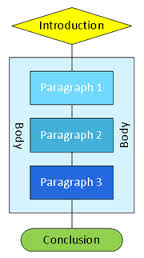
Writing Series Part Two: Independent Five-paragraph Essay Structure
This post address an essay’s structure, particularly the five-paragraph essay typically written for the TOEFL or IELTS independent essay.

Writing Series Part One: Brainstorming with Mind Maps
Peace Corps TEFL volunteers in Ecuador teach middle school, high school, and college students as well as local English teacher counterparts. Clearly, we teach writing at all language levels and have different goals based on the clients we serve. Since many current Ecuadorian English teachers and, also, college students who have received scholarships to study […]

WH-Questions and Simple Present Tense Practice
The communicative approach to language learning is prioritized in Ecuador, and, therefore, we try to promote classroom speaking practice with our counterpart local teachers and their students. Our students don’t have many opportunities to interact with English visitors, even in the largest cities of Cuenca and Quito, so it’s important for PC TEFL volunteers to provide practice at school. In […]

How Often Do You…?
This post has instructions for a game that gives students practice asking questions using “How often do you…?” do a particular activity and answering the questions using adverbs of frequency.

Understanding the Speaker’s Attitude
The door to successful listening, especially understanding informal presentations and conversations, hangs on a number of hinges like utterances, useful expressions, idioms, pronunciation, tone of voice, facial expression and gestures (if video is available), and attitude. These components are often related and, as a whole, give listeners a clearer idea of what they have heard.

Love on a Leash
While dogs, “man’s best friends,” have long occupied a special place in US homes, keeping a dog as a pet in Ecuador is a relatively new custom. Certainly dogs have worked in the fields for centuries, but many Ecuadorians and other peoples are unaware that dogs have a remarkable ability to bond with humans. This makes […]

Chance Encounters
This activity uses pictures of a wide range of people for whom students will write dialogues that might occur if the individuals had a chance meeting somewhere in the world. The lesson plan is adapted from one created by Allegra K. Troiano, Senior English Language Fellow (ELF), US Embassy.

Brainstorming: Part Two
Peace Corps Ecuador Volunteer Kate Barba produced this PowerPoint presentation and workshop for the University of Machala’s ESL teacher candidates. Prewriting is covered in more depth than in the previously posted “Brainstorming” PowerPoint as these prospective teachers have higher English fluency. Volunteers who are teaching college students or advanced speakers will find this resources useful.

Chicago Food Tour Cultural Exchange
We love food, especially food that stimulates and surprises! EFL students and teachers are usually surprised to learn that the US population comprises every nationality on Earth. Realizing how diverse our country is–waves of immigration have been our history–many EFL learners understand that our language varies across the nation, not to mention internationally. This lesson […]

Prewriting Brainstorming
Teaching the writing of academic English to Ecuadorian college students who wished to study abroad taught me that prewriting is critical to all successful writing. My favorite prewriting technique is brainstorming and creating cluster or bubble maps. This PowerPoint explains the why and how.

Sharing the News(letter)
Asking your students to share news, culture, traditions, and life stories with students in the US by writing a newsletter (or creating a video) with a partner Peace Corps World Wise School is a rewarding experience for both sides.


